


Notice: This is the official website of the All Empires History Community (Reg. 10 Feb 2002)
|
Post Reply 
|
Page <1234 6> |
| Author | |||||||||||||||||||||||||||||||||||||||||||||||||||||||||||||||||||||||||||||||||||||||||||||||||||||||||||||||||||||||||||||||||||||||||||||||||||||||||||||||||||||||||||||||||||||||||||||||||||||||||||||||||||||||||||||||||||||||||||||||||||||||||||||||||||||||||||||||||||||
britani 
Knight 
Suspended Joined: 26-Mar-2007 Online Status: Offline Posts: 60 |
 Topic: is albanian language the oldest one? Topic: is albanian language the oldest one?Posted: 24-Apr-2007 at 09:48 |
||||||||||||||||||||||||||||||||||||||||||||||||||||||||||||||||||||||||||||||||||||||||||||||||||||||||||||||||||||||||||||||||||||||||||||||||||||||||||||||||||||||||||||||||||||||||||||||||||||||||||||||||||||||||||||||||||||||||||||||||||||||||||||||||||||||||||||||||||||
|
originally posted by Spartakus
britani is obviously trying to prove that Ancient Greek language is Albanian. Well, as far as i am concerned ,this is plain
 Why? Why?First of all, the very term "Albanian" did not even existed in the Ancient Years . You may talk about Illyrian . You may say that Albanian are originated in Illyrian ,but this does not mean that the Ancient Illyrian is Albanian.The very term Albanian may not have appeared until the Late Medieval and early Ottoman times (if i remember correctly) ,but surely not earlier. first of all the term "albania' didnt exist in the ancient years couse we were named like illyrian/epirotan (as the same to you >hellen).
Yes it means that the illyrians are the same to albanians,and a very objectiv fact is the "albanian/ilyrian language" couse it is the same.
All illyrians names and words are still in use ourdays
Secondly,yes we were influenced by hellenic language but we never forget ours. |
|||||||||||||||||||||||||||||||||||||||||||||||||||||||||||||||||||||||||||||||||||||||||||||||||||||||||||||||||||||||||||||||||||||||||||||||||||||||||||||||||||||||||||||||||||||||||||||||||||||||||||||||||||||||||||||||||||||||||||||||||||||||||||||||||||||||||||||||||||||
 |
|||||||||||||||||||||||||||||||||||||||||||||||||||||||||||||||||||||||||||||||||||||||||||||||||||||||||||||||||||||||||||||||||||||||||||||||||||||||||||||||||||||||||||||||||||||||||||||||||||||||||||||||||||||||||||||||||||||||||||||||||||||||||||||||||||||||||||||||||||||
britani 
Knight 
Suspended Joined: 26-Mar-2007 Online Status: Offline Posts: 60 |
 Posted: 24-Apr-2007 at 10:00 Posted: 24-Apr-2007 at 10:00 |
||||||||||||||||||||||||||||||||||||||||||||||||||||||||||||||||||||||||||||||||||||||||||||||||||||||||||||||||||||||||||||||||||||||||||||||||||||||||||||||||||||||||||||||||||||||||||||||||||||||||||||||||||||||||||||||||||||||||||||||||||||||||||||||||||||||||||||||||||||
|
take a look at these
|
|||||||||||||||||||||||||||||||||||||||||||||||||||||||||||||||||||||||||||||||||||||||||||||||||||||||||||||||||||||||||||||||||||||||||||||||||||||||||||||||||||||||||||||||||||||||||||||||||||||||||||||||||||||||||||||||||||||||||||||||||||||||||||||||||||||||||||||||||||||
 |
|||||||||||||||||||||||||||||||||||||||||||||||||||||||||||||||||||||||||||||||||||||||||||||||||||||||||||||||||||||||||||||||||||||||||||||||||||||||||||||||||||||||||||||||||||||||||||||||||||||||||||||||||||||||||||||||||||||||||||||||||||||||||||||||||||||||||||||||||||||
britani 
Knight 
Suspended Joined: 26-Mar-2007 Online Status: Offline Posts: 60 |
 Posted: 24-Apr-2007 at 10:05 Posted: 24-Apr-2007 at 10:05 |
||||||||||||||||||||||||||||||||||||||||||||||||||||||||||||||||||||||||||||||||||||||||||||||||||||||||||||||||||||||||||||||||||||||||||||||||||||||||||||||||||||||||||||||||||||||||||||||||||||||||||||||||||||||||||||||||||||||||||||||||||||||||||||||||||||||||||||||||||||
Source:
Edwin E. Jacques, The Albanians: An Ethnic History from Prehistoric Times to the Present,
McFarland & Company Inc. Publishers, Jefferson, |
|||||||||||||||||||||||||||||||||||||||||||||||||||||||||||||||||||||||||||||||||||||||||||||||||||||||||||||||||||||||||||||||||||||||||||||||||||||||||||||||||||||||||||||||||||||||||||||||||||||||||||||||||||||||||||||||||||||||||||||||||||||||||||||||||||||||||||||||||||||
 |
|||||||||||||||||||||||||||||||||||||||||||||||||||||||||||||||||||||||||||||||||||||||||||||||||||||||||||||||||||||||||||||||||||||||||||||||||||||||||||||||||||||||||||||||||||||||||||||||||||||||||||||||||||||||||||||||||||||||||||||||||||||||||||||||||||||||||||||||||||||
britani 
Knight 
Suspended Joined: 26-Mar-2007 Online Status: Offline Posts: 60 |
 Posted: 24-Apr-2007 at 10:09 Posted: 24-Apr-2007 at 10:09 |
||||||||||||||||||||||||||||||||||||||||||||||||||||||||||||||||||||||||||||||||||||||||||||||||||||||||||||||||||||||||||||||||||||||||||||||||||||||||||||||||||||||||||||||||||||||||||||||||||||||||||||||||||||||||||||||||||||||||||||||||||||||||||||||||||||||||||||||||||||
|
|
|||||||||||||||||||||||||||||||||||||||||||||||||||||||||||||||||||||||||||||||||||||||||||||||||||||||||||||||||||||||||||||||||||||||||||||||||||||||||||||||||||||||||||||||||||||||||||||||||||||||||||||||||||||||||||||||||||||||||||||||||||||||||||||||||||||||||||||||||||||
 |
|||||||||||||||||||||||||||||||||||||||||||||||||||||||||||||||||||||||||||||||||||||||||||||||||||||||||||||||||||||||||||||||||||||||||||||||||||||||||||||||||||||||||||||||||||||||||||||||||||||||||||||||||||||||||||||||||||||||||||||||||||||||||||||||||||||||||||||||||||||
britani 
Knight 
Suspended Joined: 26-Mar-2007 Online Status: Offline Posts: 60 |
 Posted: 24-Apr-2007 at 10:15 Posted: 24-Apr-2007 at 10:15 |
||||||||||||||||||||||||||||||||||||||||||||||||||||||||||||||||||||||||||||||||||||||||||||||||||||||||||||||||||||||||||||||||||||||||||||||||||||||||||||||||||||||||||||||||||||||||||||||||||||||||||||||||||||||||||||||||||||||||||||||||||||||||||||||||||||||||||||||||||||
|
THE LANGUAGE OF GOD
by James Wm. Pandeli
I
The Illyrian Language
It is the purpose of this writing to inspire thought; to enlighten the
people of the Illyrian (Albanian) heritage; to help the Jews understand the
ancient roots of their religion and hopefully enlighten the peoples of
Christianity and Islam as well by placing in proper perspective these monotheistic
(one God) religions within the context of the evolution of man. Prehistoric man
created the ideas, names of
the gods and religious stories through his perceptions and understandings of
the natural surroundings. It is the Illyrian (Albanian) language that appears
to translate this phenomenon.
This attempt may help to reconcile Darwin's Theory of Evolution of 1859
with the creationist idea of a beginning that took place some 5764 years ago.
As Darwin's theory might be referred to as the 'language of nature', the
Illyrian (Albanian) language could be referred to as the 'language of god'.
This may all have become possible because the 'greek code' had been
deciphered when parts of Hesiod's 'Theogony' (Genesis of the Gods)c. 700 B.C.,
was analyzed and placed within an Illyrian (Albanian) context in 1980, using
the Albanian language as the tool in gaining a new insight into his work.
Hesiod was a Greek farmer/shepard turned poet.
Albanian is the oldest language in Europe and by some accounts has
been compared to Etruscan (Z. Mayani, 'Etruscans Begin to Speak'). The Albanian
alphabet was not developed until 1878 and the majority of the population was
illiterate as recent as 1945. The Albanians are considered the descendents of
the Illyrians. There is little record of the Illyrian civilization as they
supposedly left no writings, a fact that I find increasingly hard to believe.
The Greeks were the scribes for the translations of the books of
the Bible from Hebrew to Greek. They may have been the unknowing scribes for
some of the Illyrian history though it appears they did not understand the
stories past on to them by the Illyrian people. 'From what parents the gods are
derived or whether they were in existence from all time, and what they are like
in shape, the Greeks do not know till this day when I write these lines'
says Herodotus, Greek historian (c. 485-425 B.C.) (Book II, 53). It should be
noted that the translation of the Bible, wherein the monotheistic concept was
introduced to the western world, had been completed during the beginning of
the first millenium. While this translation process was taking place the
Alexandria (Egypt) Library was destroyed. It was said that this library contained
the story of mankind.
It should have been the wonder of the ages how the Greeks could have
been the scribes of both the early Illyrian vocal histories and have understood
none of it, as has been proven with the analysis of Hesiod's work, and some
centuries later became the translators for one of the most important religious
documents, the Bible, yet understood little of the roots of the evolution of
religion in their world. Maybe now that we might begin to recognize that there
is a 'language of god', a language that gave translation to the evolution of
religion that we know in our world, we can begin to view this evolution with a
clearer perspective.
II
An Illyrian World
It is my contention that long before the 'beginning of the world' as
expressed in Genesis, the first book of the Bible, there was an Illyrian world
in the prehistoric era. It was one that had great religious influence over
the Mediterranean world and the areas of the regions known as the Middle East
and northern Africa. Though some of this Illyrian influence may have been lost
to the Jews in their early culture it is probable that the teachers of Abraham,
the Patriarch of the Jews, were aware of it.
The concepts of 'west' and 'ancestors' were important parts of the
prehistoric cultures in the ancient world. In Albanian the word 'perendim'
translates to 'west'. The word 'Perendia' translates to 'God' or 'god-like'. In
Albanian the words 'ze fare' translates to 'the voice (or message) of the
ancestors'. The Greek name for 'west wind' was 'zephyr' which probably derives
from the Albanian word 'ancestors'.
Some European scholars have tried to find the key to the Illyrians
because they sensed that it might have been a missing link to understanding the
religious evolution in the western world. They were unsuccessful in finding
this Illyrian world, and it appears that they could not imagine a wider
implication. A reasoning process may enlighten us - help us to understand the
religious and spiritual phenomenon in nature that enlightened prehistoric man. It
seems to have been lost almost from the beginning of the historic era and
became more political in its evolution.
III
The Concepts: Ou, Ra, and Tos
In Greek, Ouranos was considered the first god, the god of heaven. If
one were to separate the name 'Ouranos', to 'Ou' 'ra', it would translate
into Albanian 'I' 'fell'. 'Ou' survives in Albanian as the personal pronoun
'I'. It was my contention that 'Ou' was the name of the first god in the line
of succession of gods. Imagine yourself as a cave-dweller living many
thousands of years ago. When you stand on the earth and view the earth and sky, does
not the sky appear to fall to the earth in every direction you view? You do
not have the understanding that the world is round. It appears that a dome
forms over the earth.
Hesiod states: "And Earth first bare starry Heaven, equal to herself,
to cover (extend over) her on every side,..." (c.700 B.C.)
It is my contention that this concept, the sky appearing to fall to
earth, may have been the most significant to the people of the prehistoric era
when their religious ideas were evolving. As a result, the 'ra' expressing
this understanding, found its way throughout the cultures of the Middle East and
North Africa over hundreds, maybe even thousands of years, in the prehistoric
era. We see the word in the name Mediterranean. In Albanian that would
translate as 'with the falling day'. Of course this analysis has never been made
because the scholars could only see 'Latin'. This has been true with many
analysis of the ancient world, the scholars see 'Latin' or 'Greek', or 'Hebrew'
then fit a reasoning process to it. Of course, to some extent, I do the same
with Illyrian (Albanian) but there is one difference - the Illyrian language is
coincident with ideas that are better explained by the 'view' in prehistoric
man's world, the evolutionary timetable within which he lived than any
subsequent document left behind by man.
One point should be made clear with regard to the first god. This
should not be confused with the idea of a supreme god within the Illyrian scheme.
The supreme god to most people of the prehistoric world was the
Mother-Earth. In some cultures she survived the prehistoric world and it is a familiar
concept in recorded history.
The concept 'Tos' ... When Hesiod was describing the beginning of the
world he mentions that in the beginning there was 'Chaos' an emptiness or a
state of disorder. And next was formed 'Ge', the earth...
In Albanian there are four principal divisions of people that have
emerged from an unrecorded past. The four divisions include the tribes Geg,
located north of the Shkumbini River in central Albania (the ancient name of the
river was Genusus; 'north' in Albanian 'veri' translates to 'the place of the
egg'; 'Shkumbe' in Albanian translates to 'foam', and the oldest story of
Aphrodite is of a foam birth, though the Greek version of that birth is not
coincident with any Illyrian understanding). To the south of the river were the
Tosk, Lab and Cham. With regard to Hesiod's first two names 'chaos' and 'ge', my
thought was that they represented two of the four Albanian divisions. I did
not allow the dialect of 'Kaos' to dissuade my observation from the Albanian
'Cha'. (The discussion and subsequent persuasion in this writer's book 'Oh
Albania, My Poor Albania' satisfied many doubts as to the possible validity since
it resulted in the breaking of the 'greek code' and made many new analysis of
the prehistoric world possible. In fact it was a factor in solving the
'mystery' of the Illyrian world.)
My conclusion had been that if the 'Ge' was the mother, in the north,
the place of the egg, then the 'Tos' might be the father in this scheme -
something that had eluded the Greeks. In Albanian the word 'tos' refers to
'pluhur' which translated to mean 'dust'. The Albanian word 'plehu' translates as
'fertilize'. My thought was that the moisture or perhaps the drizzle of rain in
the air on a moonlit night might have been likened to the dust-like
appearance one might see in the air during daylight. The prehistoric peoples may have
equated this 'dust' as a 'fertilizing' of Mother Earth - not in the factual
scientific terms we know today, but in some reasoning that they could comprehend
in their time. It is my belief that the 'tos' was synonymous with the
concept of 'fertilization'.
IV
The Names: 'Torah', 'Ur'
The Torah is one of the most important documents in Jewish culture. It
may be said that the Torah is the whole body of Jewish religious literature
including the Scriptures (the Bible). More specifically the Torah is
considered the first five books of the Old Testament of the Bible: Genesis, Exodus,
Levitus, Numbers and Deuteronomy. In the Jewish tradition, it is the
introduction of the 'One God' to the Jewish people, and subsequently to a large part of
the human race represented by the people of Christianity and the people of
Islam.
Abraham was the founder of Judaism, the first great patriarch who
introduced the concept of monotheism - the doctrine in the belief that there is
only one God. He was born in Ur, a place in present day Iraq.
Quite simply it is my contention that the 'To' in 'Torah' represents
the 'fertilization', and the 'rah', that which 'fell to earth', or the
'fatherhood which fell to earth'. This is what I believe to be the etymology - the
origin and prehistorical developement of this name. And it is quite fitting,
and no wonder, that the patriarch and founder of this 'One God' concept should
be born in a place called 'Ur', a name that I believe developed from the
Illyrian concept 'Ou' 'Ra'...
Albania, including KosovA, should be viewed not only as a nation that
had been established in 1912, (KosovA was stolen from Albania by the Great
Powers of early 20th century Europe and pillaged by neighbors) but also a
culture, a living, breathing heritage for many thousands of years despite the lack of
an alphabet until 1878 and an illiterate population as recent as 1945. There
are prehistoric concepts within this heritage that can be the only source of
explanation for the origin of religious ideas and tradition that exist in many
cultures with regard to the 'west' and 'ancestoral reverence'. And it becomes
apparent that the ideas pre-date any recorded civilization's claim to
antiquity by the very nature of its preservation - they can be found, even though
lost for thousands of years, not through documents, not by investigating pottery
or other artifacts, but through a reasoning process that applies the Albanian
language to the same natural surroundings that were readily available to
prehistoric man as it is to ourselves today.
It is important to understand that the Illyrian (Albanian) and Jewish
peoples at one time lived in a prehistoric world, one culture subsequently
left writings, one supposedly did not; one culture lost some of the
understandings of that world, the other culture remained a mystery for thousands of years
until 1980.
In Albanian 'Genusus' would translate to 'Mother Earth as a bride'.
'Nuse' translates to 'bride'... It is most probable the origin of the Greek
word 'Genesis', 'the beginning', derives from this concept.
In Albanian the word 'dhenderr' translates to 'groom'. 'Dhe'
translates to 'earth', and 'nderr' translates 'to extend' or 'spread over'.
From Homeric Hymn, c.800 B.C.: 'Hail Mother of the gods, wife of
starry Heaven'.
From Hesiod, c.700 B.C.: 'And earth first bare starry Heaven, equal
to herself, to cover (extend over) her on every side..."
V
The Bridge to the Blessed Father
Thousands of years have passed without the benefit of insight into the
prehistoric Illyrian world, without an awareness that there was and still is
a 'language of god'. It is a 'language' which may help man to understand the
prehistoric evolution of the religious and spiritual phenomenon that rooted in
that era and in some aspects survived in the world we know today. It is a
'language' which might answer questions that can help man to better understand
his world, his religion.
The reader must recognize that we live in a very dangerous world where
technology has given humanity some very unforgiving powers. The Illyrian
(Albanian) language might teach something. Hopefully it can be the catalyst which
could take us from Day One of the evolutionary process to Day Two. It is a
new awareness of an old phenomenon.
If one were to point to the place where the heaven meets the earth
and follow the path of the sun overhead and toward the west, an imaginary bridge
would be drawn. In Albanian 'ura' translates to 'bridge'. 'Urat' translates
to 'the blessed father'.
|
|||||||||||||||||||||||||||||||||||||||||||||||||||||||||||||||||||||||||||||||||||||||||||||||||||||||||||||||||||||||||||||||||||||||||||||||||||||||||||||||||||||||||||||||||||||||||||||||||||||||||||||||||||||||||||||||||||||||||||||||||||||||||||||||||||||||||||||||||||||
 |
|||||||||||||||||||||||||||||||||||||||||||||||||||||||||||||||||||||||||||||||||||||||||||||||||||||||||||||||||||||||||||||||||||||||||||||||||||||||||||||||||||||||||||||||||||||||||||||||||||||||||||||||||||||||||||||||||||||||||||||||||||||||||||||||||||||||||||||||||||||
britani 
Knight 
Suspended Joined: 26-Mar-2007 Online Status: Offline Posts: 60 |
 Posted: 24-Apr-2007 at 10:23 Posted: 24-Apr-2007 at 10:23 |
||||||||||||||||||||||||||||||||||||||||||||||||||||||||||||||||||||||||||||||||||||||||||||||||||||||||||||||||||||||||||||||||||||||||||||||||||||||||||||||||||||||||||||||||||||||||||||||||||||||||||||||||||||||||||||||||||||||||||||||||||||||||||||||||||||||||||||||||||||
|
ALBANIAN - HOMERIKE - BIZANTINE
|
|||||||||||||||||||||||||||||||||||||||||||||||||||||||||||||||||||||||||||||||||||||||||||||||||||||||||||||||||||||||||||||||||||||||||||||||||||||||||||||||||||||||||||||||||||||||||||||||||||||||||||||||||||||||||||||||||||||||||||||||||||||||||||||||||||||||||||||||||||||
 |
|||||||||||||||||||||||||||||||||||||||||||||||||||||||||||||||||||||||||||||||||||||||||||||||||||||||||||||||||||||||||||||||||||||||||||||||||||||||||||||||||||||||||||||||||||||||||||||||||||||||||||||||||||||||||||||||||||||||||||||||||||||||||||||||||||||||||||||||||||||
britani 
Knight 
Suspended Joined: 26-Mar-2007 Online Status: Offline Posts: 60 |
 Posted: 24-Apr-2007 at 10:45 Posted: 24-Apr-2007 at 10:45 |
||||||||||||||||||||||||||||||||||||||||||||||||||||||||||||||||||||||||||||||||||||||||||||||||||||||||||||||||||||||||||||||||||||||||||||||||||||||||||||||||||||||||||||||||||||||||||||||||||||||||||||||||||||||||||||||||||||||||||||||||||||||||||||||||||||||||||||||||||||
 |
|||||||||||||||||||||||||||||||||||||||||||||||||||||||||||||||||||||||||||||||||||||||||||||||||||||||||||||||||||||||||||||||||||||||||||||||||||||||||||||||||||||||||||||||||||||||||||||||||||||||||||||||||||||||||||||||||||||||||||||||||||||||||||||||||||||||||||||||||||||
Spartakus 
Tsar 

terƶrist Joined: 22-Nov-2004 Location: Greece/Hellas Online Status: Offline Posts: 4489 |
 Posted: 24-Apr-2007 at 14:51 Posted: 24-Apr-2007 at 14:51 |
||||||||||||||||||||||||||||||||||||||||||||||||||||||||||||||||||||||||||||||||||||||||||||||||||||||||||||||||||||||||||||||||||||||||||||||||||||||||||||||||||||||||||||||||||||||||||||||||||||||||||||||||||||||||||||||||||||||||||||||||||||||||||||||||||||||||||||||||||||
You do not understand ,or you are not willing to understand the fact that identities change. An Illyrian was not Albanian .He was simply Illyrian ,since the identity of Albanian did not exist ,not to mention the very term "Albanian nation". If you went to a time machine back to Ancient Illyria and tell an Illyrian "my Albanian brother" , he would not understand anything at all.
|
|||||||||||||||||||||||||||||||||||||||||||||||||||||||||||||||||||||||||||||||||||||||||||||||||||||||||||||||||||||||||||||||||||||||||||||||||||||||||||||||||||||||||||||||||||||||||||||||||||||||||||||||||||||||||||||||||||||||||||||||||||||||||||||||||||||||||||||||||||||
|
"There are worse crimes than burning books. One of them is not reading them. "
--- Joseph Alexandrovitch Brodsky, 1991, Russian-American poet, b. St. Petersburg and exiled 1972 (1940-1996) |
|||||||||||||||||||||||||||||||||||||||||||||||||||||||||||||||||||||||||||||||||||||||||||||||||||||||||||||||||||||||||||||||||||||||||||||||||||||||||||||||||||||||||||||||||||||||||||||||||||||||||||||||||||||||||||||||||||||||||||||||||||||||||||||||||||||||||||||||||||||
 |
|||||||||||||||||||||||||||||||||||||||||||||||||||||||||||||||||||||||||||||||||||||||||||||||||||||||||||||||||||||||||||||||||||||||||||||||||||||||||||||||||||||||||||||||||||||||||||||||||||||||||||||||||||||||||||||||||||||||||||||||||||||||||||||||||||||||||||||||||||||
Spartakus 
Tsar 

terƶrist Joined: 22-Nov-2004 Location: Greece/Hellas Online Status: Offline Posts: 4489 |
 Posted: 24-Apr-2007 at 14:53 Posted: 24-Apr-2007 at 14:53 |
||||||||||||||||||||||||||||||||||||||||||||||||||||||||||||||||||||||||||||||||||||||||||||||||||||||||||||||||||||||||||||||||||||||||||||||||||||||||||||||||||||||||||||||||||||||||||||||||||||||||||||||||||||||||||||||||||||||||||||||||||||||||||||||||||||||||||||||||||||
There is no Ancient manuscript in Illlyrian saved.So you cannot possibly know differences and similarities with Ancient or Modern languages.
|
|||||||||||||||||||||||||||||||||||||||||||||||||||||||||||||||||||||||||||||||||||||||||||||||||||||||||||||||||||||||||||||||||||||||||||||||||||||||||||||||||||||||||||||||||||||||||||||||||||||||||||||||||||||||||||||||||||||||||||||||||||||||||||||||||||||||||||||||||||||
|
"There are worse crimes than burning books. One of them is not reading them. "
--- Joseph Alexandrovitch Brodsky, 1991, Russian-American poet, b. St. Petersburg and exiled 1972 (1940-1996) |
|||||||||||||||||||||||||||||||||||||||||||||||||||||||||||||||||||||||||||||||||||||||||||||||||||||||||||||||||||||||||||||||||||||||||||||||||||||||||||||||||||||||||||||||||||||||||||||||||||||||||||||||||||||||||||||||||||||||||||||||||||||||||||||||||||||||||||||||||||||
 |
|||||||||||||||||||||||||||||||||||||||||||||||||||||||||||||||||||||||||||||||||||||||||||||||||||||||||||||||||||||||||||||||||||||||||||||||||||||||||||||||||||||||||||||||||||||||||||||||||||||||||||||||||||||||||||||||||||||||||||||||||||||||||||||||||||||||||||||||||||||
Giannis 
Baron 
Joined: 25-May-2006 Location: Greece Online Status: Offline Posts: 493 |
 Posted: 24-Apr-2007 at 14:56 Posted: 24-Apr-2007 at 14:56 |
||||||||||||||||||||||||||||||||||||||||||||||||||||||||||||||||||||||||||||||||||||||||||||||||||||||||||||||||||||||||||||||||||||||||||||||||||||||||||||||||||||||||||||||||||||||||||||||||||||||||||||||||||||||||||||||||||||||||||||||||||||||||||||||||||||||||||||||||||||
|
Great stuff britani
What is your source ''uncyclopedia''?
But, wait I have a revelation, the albanian language is a greek one, here is why: albania in albanian is Shqip - shq-ip-shq-epi-skepi-roof!!!
Amazing isn't it!!!!
|
|||||||||||||||||||||||||||||||||||||||||||||||||||||||||||||||||||||||||||||||||||||||||||||||||||||||||||||||||||||||||||||||||||||||||||||||||||||||||||||||||||||||||||||||||||||||||||||||||||||||||||||||||||||||||||||||||||||||||||||||||||||||||||||||||||||||||||||||||||||
 Give me a place to stand and I will move the world. Give me a place to stand and I will move the world.
|
|||||||||||||||||||||||||||||||||||||||||||||||||||||||||||||||||||||||||||||||||||||||||||||||||||||||||||||||||||||||||||||||||||||||||||||||||||||||||||||||||||||||||||||||||||||||||||||||||||||||||||||||||||||||||||||||||||||||||||||||||||||||||||||||||||||||||||||||||||||
 |
|||||||||||||||||||||||||||||||||||||||||||||||||||||||||||||||||||||||||||||||||||||||||||||||||||||||||||||||||||||||||||||||||||||||||||||||||||||||||||||||||||||||||||||||||||||||||||||||||||||||||||||||||||||||||||||||||||||||||||||||||||||||||||||||||||||||||||||||||||||
Spartakus 
Tsar 

terƶrist Joined: 22-Nov-2004 Location: Greece/Hellas Online Status: Offline Posts: 4489 |
 Posted: 24-Apr-2007 at 14:58 Posted: 24-Apr-2007 at 14:58 |
||||||||||||||||||||||||||||||||||||||||||||||||||||||||||||||||||||||||||||||||||||||||||||||||||||||||||||||||||||||||||||||||||||||||||||||||||||||||||||||||||||||||||||||||||||||||||||||||||||||||||||||||||||||||||||||||||||||||||||||||||||||||||||||||||||||||||||||||||||
It would be interesting ,but you forgot sth : all these words you are presenting are nothing more than Latin equivalents of Hellenic names,and not original Hellenic names ,written in Hellenic. There are differences between Ancient Hellenic and Latin ,with one obvious in the accent .You cannot compare an Ancient Language ,like Ancient Hellenic, by only showing it's Latin equivalent. It's simply a scratchy work.
|
|||||||||||||||||||||||||||||||||||||||||||||||||||||||||||||||||||||||||||||||||||||||||||||||||||||||||||||||||||||||||||||||||||||||||||||||||||||||||||||||||||||||||||||||||||||||||||||||||||||||||||||||||||||||||||||||||||||||||||||||||||||||||||||||||||||||||||||||||||||
|
"There are worse crimes than burning books. One of them is not reading them. "
--- Joseph Alexandrovitch Brodsky, 1991, Russian-American poet, b. St. Petersburg and exiled 1972 (1940-1996) |
|||||||||||||||||||||||||||||||||||||||||||||||||||||||||||||||||||||||||||||||||||||||||||||||||||||||||||||||||||||||||||||||||||||||||||||||||||||||||||||||||||||||||||||||||||||||||||||||||||||||||||||||||||||||||||||||||||||||||||||||||||||||||||||||||||||||||||||||||||||
 |
|||||||||||||||||||||||||||||||||||||||||||||||||||||||||||||||||||||||||||||||||||||||||||||||||||||||||||||||||||||||||||||||||||||||||||||||||||||||||||||||||||||||||||||||||||||||||||||||||||||||||||||||||||||||||||||||||||||||||||||||||||||||||||||||||||||||||||||||||||||
Spartakus 
Tsar 

terƶrist Joined: 22-Nov-2004 Location: Greece/Hellas Online Status: Offline Posts: 4489 |
 Posted: 24-Apr-2007 at 15:09 Posted: 24-Apr-2007 at 15:09 |
||||||||||||||||||||||||||||||||||||||||||||||||||||||||||||||||||||||||||||||||||||||||||||||||||||||||||||||||||||||||||||||||||||||||||||||||||||||||||||||||||||||||||||||||||||||||||||||||||||||||||||||||||||||||||||||||||||||||||||||||||||||||||||||||||||||||||||||||||||
|
THE LANGUAGE OF GOD
by James Wm. Pandeli
This man is comparing Modern Albanian with Ancient Hellenic language. Edited by Spartakus - 24-Apr-2007 at 15:11 |
|||||||||||||||||||||||||||||||||||||||||||||||||||||||||||||||||||||||||||||||||||||||||||||||||||||||||||||||||||||||||||||||||||||||||||||||||||||||||||||||||||||||||||||||||||||||||||||||||||||||||||||||||||||||||||||||||||||||||||||||||||||||||||||||||||||||||||||||||||||
|
"There are worse crimes than burning books. One of them is not reading them. "
--- Joseph Alexandrovitch Brodsky, 1991, Russian-American poet, b. St. Petersburg and exiled 1972 (1940-1996) |
|||||||||||||||||||||||||||||||||||||||||||||||||||||||||||||||||||||||||||||||||||||||||||||||||||||||||||||||||||||||||||||||||||||||||||||||||||||||||||||||||||||||||||||||||||||||||||||||||||||||||||||||||||||||||||||||||||||||||||||||||||||||||||||||||||||||||||||||||||||
 |
|||||||||||||||||||||||||||||||||||||||||||||||||||||||||||||||||||||||||||||||||||||||||||||||||||||||||||||||||||||||||||||||||||||||||||||||||||||||||||||||||||||||||||||||||||||||||||||||||||||||||||||||||||||||||||||||||||||||||||||||||||||||||||||||||||||||||||||||||||||
Anton 
Caliph 
Joined: 23-Jun-2006 Location: Bulgaria Online Status: Offline Posts: 2888 |
 Posted: 25-Apr-2007 at 05:29 Posted: 25-Apr-2007 at 05:29 |
||||||||||||||||||||||||||||||||||||||||||||||||||||||||||||||||||||||||||||||||||||||||||||||||||||||||||||||||||||||||||||||||||||||||||||||||||||||||||||||||||||||||||||||||||||||||||||||||||||||||||||||||||||||||||||||||||||||||||||||||||||||||||||||||||||||||||||||||||||
Yeah, nice site indeed. I just read there about Greek origin of Macedonians, Greek origin of Romans, Epyrotans, the major cause of Reinessance by Greeks migrating from Constantinople, Greekness of Kukuzelis and Kastrioti, homogeneous population of Byzantine Empire with unique Greek identity, Hellenization of the whole Universe that was impressed by Hellenic civilization, very very limited slavonic compound of modern Greek nation, and many other interesting stories. I highly recomend this site to everybody.
In the same site you may find stories that Thracians were slavonic people, Veneti were slavs, Albanian language was not changed for many thousands years, Bulgars were saviours of Europe, Romanians are descendants of Romanized Dacians, modern macedonian nation was created by Serbs etc.etc.etc.
|
|||||||||||||||||||||||||||||||||||||||||||||||||||||||||||||||||||||||||||||||||||||||||||||||||||||||||||||||||||||||||||||||||||||||||||||||||||||||||||||||||||||||||||||||||||||||||||||||||||||||||||||||||||||||||||||||||||||||||||||||||||||||||||||||||||||||||||||||||||||
|
.
|
|||||||||||||||||||||||||||||||||||||||||||||||||||||||||||||||||||||||||||||||||||||||||||||||||||||||||||||||||||||||||||||||||||||||||||||||||||||||||||||||||||||||||||||||||||||||||||||||||||||||||||||||||||||||||||||||||||||||||||||||||||||||||||||||||||||||||||||||||||||
 |
|||||||||||||||||||||||||||||||||||||||||||||||||||||||||||||||||||||||||||||||||||||||||||||||||||||||||||||||||||||||||||||||||||||||||||||||||||||||||||||||||||||||||||||||||||||||||||||||||||||||||||||||||||||||||||||||||||||||||||||||||||||||||||||||||||||||||||||||||||||
Giannis 
Baron 
Joined: 25-May-2006 Location: Greece Online Status: Offline Posts: 493 |
 Posted: 25-Apr-2007 at 05:53 Posted: 25-Apr-2007 at 05:53 |
||||||||||||||||||||||||||||||||||||||||||||||||||||||||||||||||||||||||||||||||||||||||||||||||||||||||||||||||||||||||||||||||||||||||||||||||||||||||||||||||||||||||||||||||||||||||||||||||||||||||||||||||||||||||||||||||||||||||||||||||||||||||||||||||||||||||||||||||||||
Yes, that's right, I'd also add that bulgars are peonians and not a turkic nation and other stories like those. Edited by Giannis - 25-Apr-2007 at 05:54 |
|||||||||||||||||||||||||||||||||||||||||||||||||||||||||||||||||||||||||||||||||||||||||||||||||||||||||||||||||||||||||||||||||||||||||||||||||||||||||||||||||||||||||||||||||||||||||||||||||||||||||||||||||||||||||||||||||||||||||||||||||||||||||||||||||||||||||||||||||||||
 Give me a place to stand and I will move the world. Give me a place to stand and I will move the world.
|
|||||||||||||||||||||||||||||||||||||||||||||||||||||||||||||||||||||||||||||||||||||||||||||||||||||||||||||||||||||||||||||||||||||||||||||||||||||||||||||||||||||||||||||||||||||||||||||||||||||||||||||||||||||||||||||||||||||||||||||||||||||||||||||||||||||||||||||||||||||
 |
|||||||||||||||||||||||||||||||||||||||||||||||||||||||||||||||||||||||||||||||||||||||||||||||||||||||||||||||||||||||||||||||||||||||||||||||||||||||||||||||||||||||||||||||||||||||||||||||||||||||||||||||||||||||||||||||||||||||||||||||||||||||||||||||||||||||||||||||||||||
Anton 
Caliph 
Joined: 23-Jun-2006 Location: Bulgaria Online Status: Offline Posts: 2888 |
 Posted: 25-Apr-2007 at 06:03 Posted: 25-Apr-2007 at 06:03 |
||||||||||||||||||||||||||||||||||||||||||||||||||||||||||||||||||||||||||||||||||||||||||||||||||||||||||||||||||||||||||||||||||||||||||||||||||||||||||||||||||||||||||||||||||||||||||||||||||||||||||||||||||||||||||||||||||||||||||||||||||||||||||||||||||||||||||||||||||||
Yes, you may find this there as well.
|
|||||||||||||||||||||||||||||||||||||||||||||||||||||||||||||||||||||||||||||||||||||||||||||||||||||||||||||||||||||||||||||||||||||||||||||||||||||||||||||||||||||||||||||||||||||||||||||||||||||||||||||||||||||||||||||||||||||||||||||||||||||||||||||||||||||||||||||||||||||
|
.
|
|||||||||||||||||||||||||||||||||||||||||||||||||||||||||||||||||||||||||||||||||||||||||||||||||||||||||||||||||||||||||||||||||||||||||||||||||||||||||||||||||||||||||||||||||||||||||||||||||||||||||||||||||||||||||||||||||||||||||||||||||||||||||||||||||||||||||||||||||||||
 |
|||||||||||||||||||||||||||||||||||||||||||||||||||||||||||||||||||||||||||||||||||||||||||||||||||||||||||||||||||||||||||||||||||||||||||||||||||||||||||||||||||||||||||||||||||||||||||||||||||||||||||||||||||||||||||||||||||||||||||||||||||||||||||||||||||||||||||||||||||||
Sorgina 
Knight 
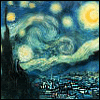
Joined: 13-Apr-2007 Online Status: Offline Posts: 63 |
 Posted: 25-Apr-2007 at 06:53 Posted: 25-Apr-2007 at 06:53 |
||||||||||||||||||||||||||||||||||||||||||||||||||||||||||||||||||||||||||||||||||||||||||||||||||||||||||||||||||||||||||||||||||||||||||||||||||||||||||||||||||||||||||||||||||||||||||||||||||||||||||||||||||||||||||||||||||||||||||||||||||||||||||||||||||||||||||||||||||||
The link doesn't work.I like to read these stories.
|
|||||||||||||||||||||||||||||||||||||||||||||||||||||||||||||||||||||||||||||||||||||||||||||||||||||||||||||||||||||||||||||||||||||||||||||||||||||||||||||||||||||||||||||||||||||||||||||||||||||||||||||||||||||||||||||||||||||||||||||||||||||||||||||||||||||||||||||||||||||

|
|||||||||||||||||||||||||||||||||||||||||||||||||||||||||||||||||||||||||||||||||||||||||||||||||||||||||||||||||||||||||||||||||||||||||||||||||||||||||||||||||||||||||||||||||||||||||||||||||||||||||||||||||||||||||||||||||||||||||||||||||||||||||||||||||||||||||||||||||||||
 |
|||||||||||||||||||||||||||||||||||||||||||||||||||||||||||||||||||||||||||||||||||||||||||||||||||||||||||||||||||||||||||||||||||||||||||||||||||||||||||||||||||||||||||||||||||||||||||||||||||||||||||||||||||||||||||||||||||||||||||||||||||||||||||||||||||||||||||||||||||||
britani 
Knight 
Suspended Joined: 26-Mar-2007 Online Status: Offline Posts: 60 |
 Posted: 25-Apr-2007 at 08:01 Posted: 25-Apr-2007 at 08:01 |
||||||||||||||||||||||||||||||||||||||||||||||||||||||||||||||||||||||||||||||||||||||||||||||||||||||||||||||||||||||||||||||||||||||||||||||||||||||||||||||||||||||||||||||||||||||||||||||||||||||||||||||||||||||||||||||||||||||||||||||||||||||||||||||||||||||||||||||||||||
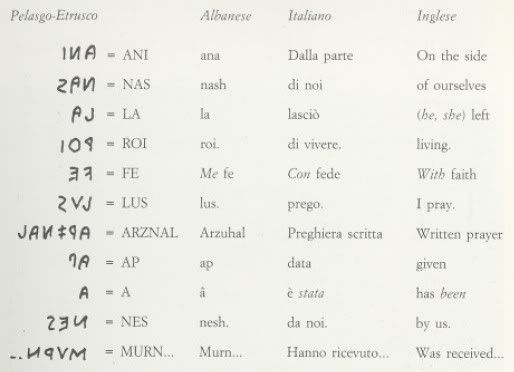
|
|||||||||||||||||||||||||||||||||||||||||||||||||||||||||||||||||||||||||||||||||||||||||||||||||||||||||||||||||||||||||||||||||||||||||||||||||||||||||||||||||||||||||||||||||||||||||||||||||||||||||||||||||||||||||||||||||||||||||||||||||||||||||||||||||||||||||||||||||||||
 |
|||||||||||||||||||||||||||||||||||||||||||||||||||||||||||||||||||||||||||||||||||||||||||||||||||||||||||||||||||||||||||||||||||||||||||||||||||||||||||||||||||||||||||||||||||||||||||||||||||||||||||||||||||||||||||||||||||||||||||||||||||||||||||||||||||||||||||||||||||||
britani 
Knight 
Suspended Joined: 26-Mar-2007 Online Status: Offline Posts: 60 |
 Posted: 25-Apr-2007 at 08:04 Posted: 25-Apr-2007 at 08:04 |
||||||||||||||||||||||||||||||||||||||||||||||||||||||||||||||||||||||||||||||||||||||||||||||||||||||||||||||||||||||||||||||||||||||||||||||||||||||||||||||||||||||||||||||||||||||||||||||||||||||||||||||||||||||||||||||||||||||||||||||||||||||||||||||||||||||||||||||||||||
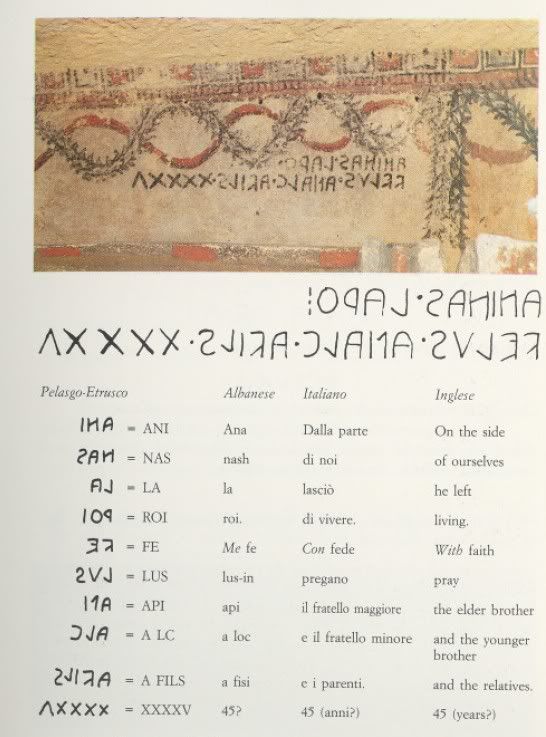 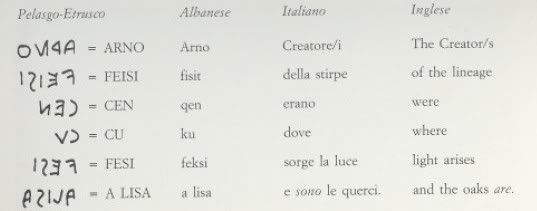
|
|||||||||||||||||||||||||||||||||||||||||||||||||||||||||||||||||||||||||||||||||||||||||||||||||||||||||||||||||||||||||||||||||||||||||||||||||||||||||||||||||||||||||||||||||||||||||||||||||||||||||||||||||||||||||||||||||||||||||||||||||||||||||||||||||||||||||||||||||||||
 |
|||||||||||||||||||||||||||||||||||||||||||||||||||||||||||||||||||||||||||||||||||||||||||||||||||||||||||||||||||||||||||||||||||||||||||||||||||||||||||||||||||||||||||||||||||||||||||||||||||||||||||||||||||||||||||||||||||||||||||||||||||||||||||||||||||||||||||||||||||||
britani 
Knight 
Suspended Joined: 26-Mar-2007 Online Status: Offline Posts: 60 |
 Posted: 25-Apr-2007 at 08:35 Posted: 25-Apr-2007 at 08:35 |
||||||||||||||||||||||||||||||||||||||||||||||||||||||||||||||||||||||||||||||||||||||||||||||||||||||||||||||||||||||||||||||||||||||||||||||||||||||||||||||||||||||||||||||||||||||||||||||||||||||||||||||||||||||||||||||||||||||||||||||||||||||||||||||||||||||||||||||||||||
|
This man is comparing Modern Albanian with Ancient Hellenic language.
no, i am only proving that albanian language is the oldest(in europe and mediterraen).
modern albanian is the old illyrian/pellazgian language,thats why all the names of gods and antic names of places can be translating only in albanian/illyrian.
But for more reason i am talking now for TROY.
I want to make you a question..."what does it mean "troy" in greek language"?
....In albanian "troy" translates as "piece of land/land/high spot(place)...when we want to say "our prone(lands) we say exactly our troy
so Troy(eng)=troje(alb).
but lets go on with TROY and her inhabbitants...The king of troy was named Priam.what does it means Priam in greece?
Again the albanian/illyrian language can help us about this couse Priam in albanians means "i am the lider"/i command/
Priam(as a good part of names) is shared in two parts....1-is "pri" that in albanian it means lead/command and the second part ..2-is "am"/jam that in albanian is the verb "be"(am=jam),,so "Priam"="/i command/lead".....and really Priam was the man that lead in troy couse he was the king of troy.
But let me go on with "Pari/Parid/Paris....this name in albanian/illyrian means "first/the first. And its not a coincidens again that the first man could be a prince like Parid
Pari"d"=Pari(the first in albanian)....
|
|||||||||||||||||||||||||||||||||||||||||||||||||||||||||||||||||||||||||||||||||||||||||||||||||||||||||||||||||||||||||||||||||||||||||||||||||||||||||||||||||||||||||||||||||||||||||||||||||||||||||||||||||||||||||||||||||||||||||||||||||||||||||||||||||||||||||||||||||||||
 |
|||||||||||||||||||||||||||||||||||||||||||||||||||||||||||||||||||||||||||||||||||||||||||||||||||||||||||||||||||||||||||||||||||||||||||||||||||||||||||||||||||||||||||||||||||||||||||||||||||||||||||||||||||||||||||||||||||||||||||||||||||||||||||||||||||||||||||||||||||||
Yiannis 
Sultan 

Joined: 03-Aug-2004 Location: Neutral Zone Online Status: Offline Posts: 2329 |
 Posted: 25-Apr-2007 at 09:04 Posted: 25-Apr-2007 at 09:04 |
||||||||||||||||||||||||||||||||||||||||||||||||||||||||||||||||||||||||||||||||||||||||||||||||||||||||||||||||||||||||||||||||||||||||||||||||||||||||||||||||||||||||||||||||||||||||||||||||||||||||||||||||||||||||||||||||||||||||||||||||||||||||||||||||||||||||||||||||||||
Who said that men came from caves??? What are you talking about?
Aphrodite:
Etymology
From the Greek aphros, (sea foam) + -ite, (Greek ending denoting a person associated with a place, etc.) As we all (?) know Aphrodite was born from the waves, in Cyprus. Dionysus:
Dionysus definitionn.
Greek & Roman Mythology The god of wine and of an orgiastic religion celebrating the power and fertility of nature. Also called Bacchus. Dionysus etymology[Latin Dion  sus, from Greek Dion sus, from Greek Dion sos.] sos.]"Dionysus" consists of two components: "dios"and "Nyssos". Dios is the genitive of Zeus, which exact translation would be: Zeus's."Nyssos" is a word of frygic-thacic origin, synonym of the word "kouros". So Dionysus is the Kouros of Zeus, therefore the son of Zeus.
EtymologyThe name Apollo might have been derived from a Pre-Hellenic compound Apo-ollon, likely related to an archaic verb Apo-ell- and literally meaning "he who elbows off", and thus "the Dispelling One". Indeed, he seems to have personified the power to dispel and ward off evil, which was related to his association with the darkness-dispelling power of the morning sun and the conceived power of reason and prophecy to dispel doubt and ignorance. In addition, Apollo's dispelling aspect made him associated with: An explanation given by Plutarch in Moralia is that Apollon signified unity, since pollon meant "many", and the prefix a- was a negative. Thus, Apollon could be read as meaning "deprived of multitude". Apollo was consequently associated with the monad. Hesychius connects the name Apollo with the Doric απελλα, which means assembly, so that Apollo would be the god of political life, and he also gives the explanation σηκος ("fold"), in which case Apollo would be the god of flocks and herds. Just because some Greek words have a meaning also in Albanian that does not mean that they're actually Albanian. Please spare us!
Investigate when and where the words you mention were used first as well as their written appearances and you will see. I remember a Greek nerd who was making a comparison of Polynesian and Greek and was trying to prove that Polynesian actually derives from Greek. In all seriousness, if one is idiot and ignorant enough, s/he may be actually persuaded because his arguments are demure.
Edited by Yiannis - 25-Apr-2007 at 09:08 |
|||||||||||||||||||||||||||||||||||||||||||||||||||||||||||||||||||||||||||||||||||||||||||||||||||||||||||||||||||||||||||||||||||||||||||||||||||||||||||||||||||||||||||||||||||||||||||||||||||||||||||||||||||||||||||||||||||||||||||||||||||||||||||||||||||||||||||||||||||||
|
The basis of a democratic state is liberty. Aristotle, Politics
Those that can give up essential liberty to obtain a temporary safety deserve neither liberty nor safety. Benjamin Franklin |
|||||||||||||||||||||||||||||||||||||||||||||||||||||||||||||||||||||||||||||||||||||||||||||||||||||||||||||||||||||||||||||||||||||||||||||||||||||||||||||||||||||||||||||||||||||||||||||||||||||||||||||||||||||||||||||||||||||||||||||||||||||||||||||||||||||||||||||||||||||
 |
|||||||||||||||||||||||||||||||||||||||||||||||||||||||||||||||||||||||||||||||||||||||||||||||||||||||||||||||||||||||||||||||||||||||||||||||||||||||||||||||||||||||||||||||||||||||||||||||||||||||||||||||||||||||||||||||||||||||||||||||||||||||||||||||||||||||||||||||||||||
Post Reply 
|
Page <1234 6> |
| Forum Jump | Forum Permissions  You cannot post new topics in this forum You cannot reply to topics in this forum You cannot delete your posts in this forum You cannot edit your posts in this forum You cannot create polls in this forum You cannot vote in polls in this forum |
Copyright ©2001-2009 Web Wiz
This page was generated in 0.078 seconds.











 is albanian language the oldest one?
is albanian language the oldest one? Printable Version
Printable Version Google
Google Delicious
Delicious Digg
Digg StumbleUpon
StumbleUpon Windows Live
Windows Live Yahoo Bookmarks
Yahoo Bookmarks reddit
reddit Facebook
Facebook MySpace
MySpace Newsvine
Newsvine Furl
Furl Topic Options
Topic Options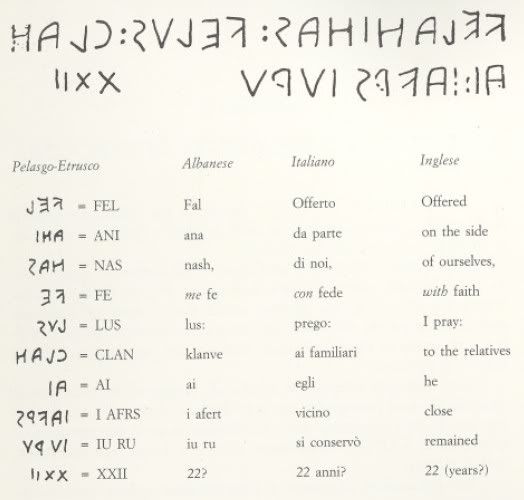
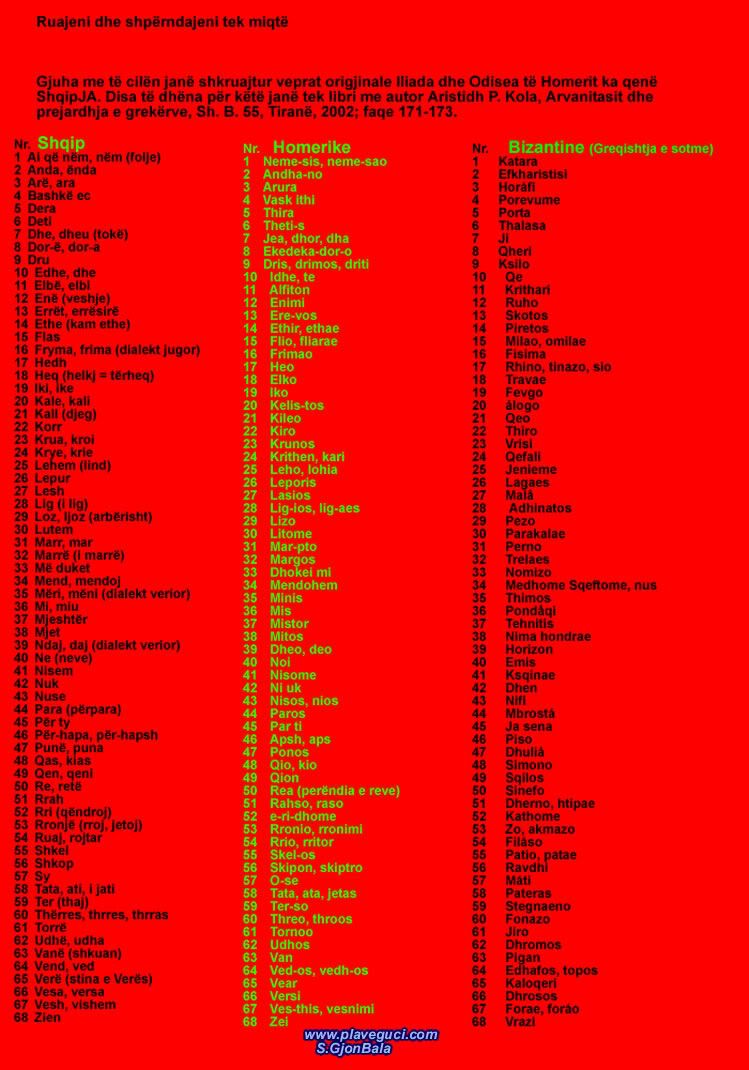
 l
l